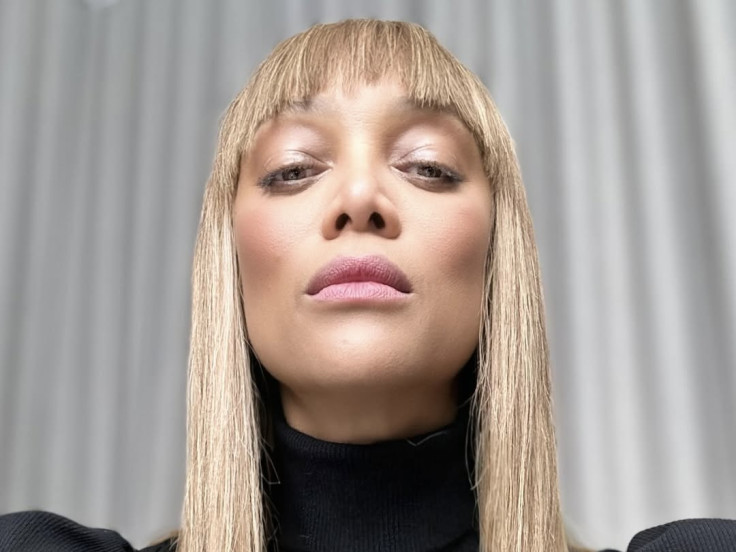'Her Karma Era': 'ANTM' Alum Says She's Loving Tyra Banks' Downfall
A resurfaced reel from Eugena Washington has reignited debate over Tyra Banks' legacy, with former contestants' allegations and Banks' own defences at the centre of a public reckoning.

Tyra Banks' fall from grace has become public theatre, and a former 'America's Next Top Model' contestant has declared she is 'enjoying' the spectacle.
In a short social-media video that has since been widely circulated, Eugena Washington, who appeared on Cycle 7 of America's Next Top Model, told viewers she is 'enjoying this flop era of Tyra.' She said she enjoys 'watching her flop' and that she thinks the situation is 'fantastic karma' for the former supermodel and media entrepreneur.
Washington's comments are the latest contribution to a re-evaluation of the ANTM franchise, its production practices, and Tyra Banks' role as creator and public face of the programme. Former contestants have in recent years accused the show of practices that they say were harmful to participants' physical and mental health — charges that Washington herself has previously articulated in interviews.
Direct Remarks From a Former Contestant
Eugena Washington made her remarks in a selfie-style reel on her verified social account, where she addressed the camera in a candid tone and repeated that she 'enjoys seeing her business not do well' while calling the current situation 'a f—kshow.'
The clip is brief but blunt, and it has drawn both support from critics of Banks and sharp rebukes from Banks' fans.
Washington is not a new critic. In 2022, she told Business Insider she once 'felt like my life was being put on the line for ratings' while filming certain challenges on ANTM, a claim that fuelled an industry-wide reappraisal of how reality-television series prioritise spectacle over contestant safety. That prior testimony provides context for her latest public condemnation.
Wider Backlash: Contestants' Claims and Public Reaction
The current public backlash has several strands. One is the resurfacing of accounts from multiple former contestants alleging psychological strain, unsafe stunts, and editorial manipulation for dramatic effect.
These testimonies were collected by outlets such as Business Insider and Vanity Fair in 2022, which documented a pattern of complaints that now inform how viewers interpret Banks' subsequent business decisions and public statements.
Another strand is the social-media mobilisation that both defends and attacks Banks. Her supporters argue that she broke significant ground for models of colour, and point to Banks' public defence of aspects of her legacy.
Detractors counter that proud proclamations about pioneering diversity do not negate lapses and harm alleged by former participants. The debate is messy and highly polarised.
@tyralooks Replying to @Faith Rene I’m noticing a trend where, when Tyra uses a globally accepted nomenclature like ‘plus-size,’ viewers subtly substitute it with ‘fat.’ The term ‘plus-size’ isn’t pejorative or an attack; it’s simply used to describe specific bodies that fit within a certain category. Tyra did not refer to these girls as ‘fat!#tyrabanks #tyra #ANTM #americasnexttopmodel #americanextopmodel #2000s #bodypositivity #supermodel #victoriassecret #blackamericanwomen
♬ original sound - tyralooks
High-profile alumni have also amplified the scrutiny. Lisa D'Amato, a Cycle 17 winner, compared the show's environment to the controversial Stanford Prison Experiment and publicly criticised both Banks and producers for causing what she described as 'insane amounts of trauma'. Those accusations, widely reported in 2023, remain part of the narrative now being revisited.
The Human Cost Versus Cultural Legacy
What makes Washington's clip noteworthy is its emotional tenor: it is less a policy critique and more a visceral reaction from someone who says they were harmed. Her phrasing, 'I think she deserves it' and 'this fantastic karma,' reframes the debate in moral terms, turning a conversation about industry practice into one about accountability and retribution.
That framing is powerful but also polarising. Supporters of former contestants see Washington's words as a long-awaited airing of grievances; fans of Banks perceive them as spiteful and reductive, arguing that Banks' wider contributions to fashion and representation should not be dismissed.
The conflict exposes a difficult question for media historians: how do we assess a cultural figure whose achievements are intertwined with contested practices?
For now, the argument continues in public, often angrily and with real consequences for reputations on both sides.
© Copyright IBTimes 2025. All rights reserved.



















